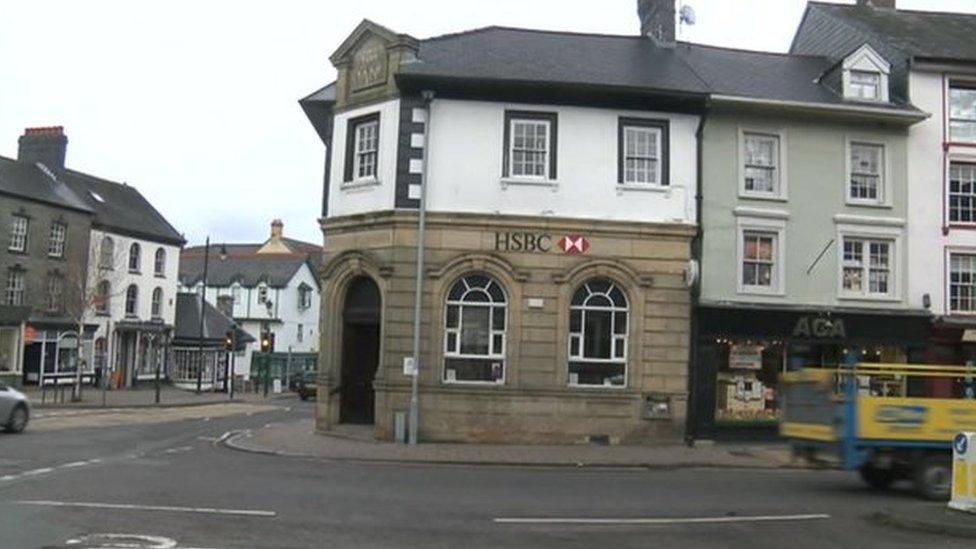Bill would 'help banks co-locate not vacate' rural areas
- Published
Ben Lake said access to over the counter bank services is still vital for many
A bill to encourage banks to share premises to avoid communities being left with no branches has been proposed by a Plaid Cymru MP.
Ben Lake said banks should be helped to "co-locate rather than completely vacate our rural communities".
He said the legislation would also make it harder to close branches and called for more funding for Post Offices to improve their financial services.
RBS is due to close 20 NatWest branches in Wales in May and June this year.
The Ceredigion MP has described branch closures as leaving rural communities in a "financial black hole" without access to basic financial services.
'Trust'
The bill would make banks deciding about closures consider how long it would take customers to travel to their next nearest branch, rather than just the distance.
And Mr Lake told MPs the creation of community banking hubs would allow banks to "pool their resources to provide centres in which they could all be accessed by their customers".
"While there is no specific regulation preventing banks from sharing branches, such banking hubs would require significant cooperation and a fair amount of trust if their practical and commercial challenges are overcome," he said.
"In order to address these challenges, and to inspire collaboration between banks, this bill would encourage the creation of regional forums that would open an avenue for banks to discuss ways in which they can work together in order to maintain a physical presence in communities."
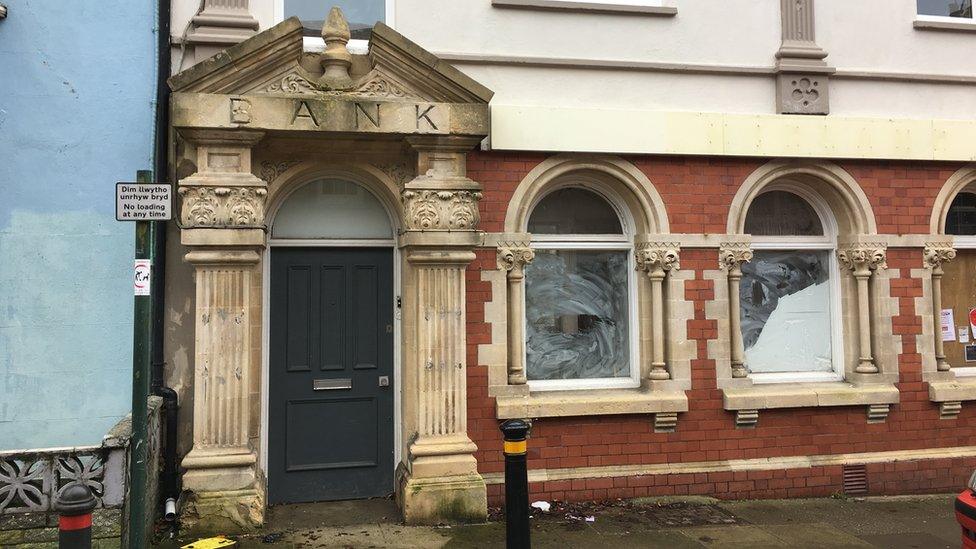
A closed bank in Llandysul, Ceredigion
The bill is unlikely to succeed without government support due to a lack of parliamentary time.
A spokesman for UK Finance, which represents the banking industry, said all the major banks had done deals to help customers and businesses do basic banking at Post Offices "creating more than 20,000 locations to do face to face banking".
"To ensure communities can still access the services they need when branches are closed, banks conduct impact assessments of the branch closure covering the alternatives available to the community for access to cash, not just access to ATMs, but also mobile branches and the Post Office," he said.
"This analysis works on the existing alternative provision rather than the assumption of a third party stepping in to provide an alternative access."
- Published2 January 2018
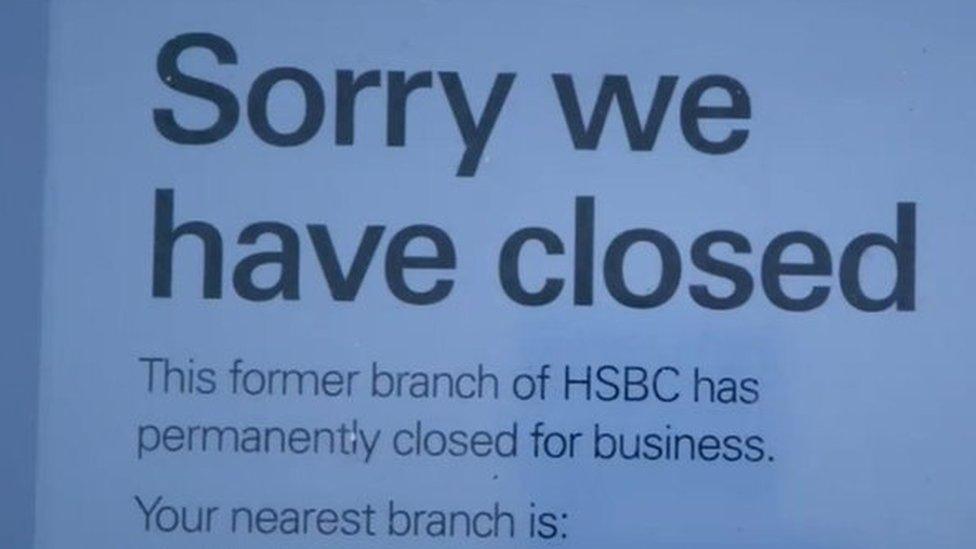
- Published1 December 2017
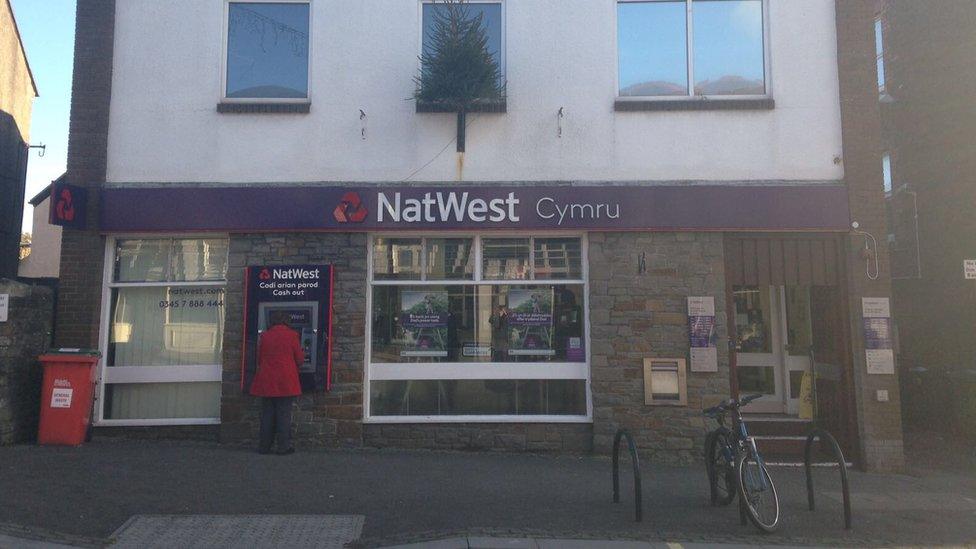
- Published1 December 2017
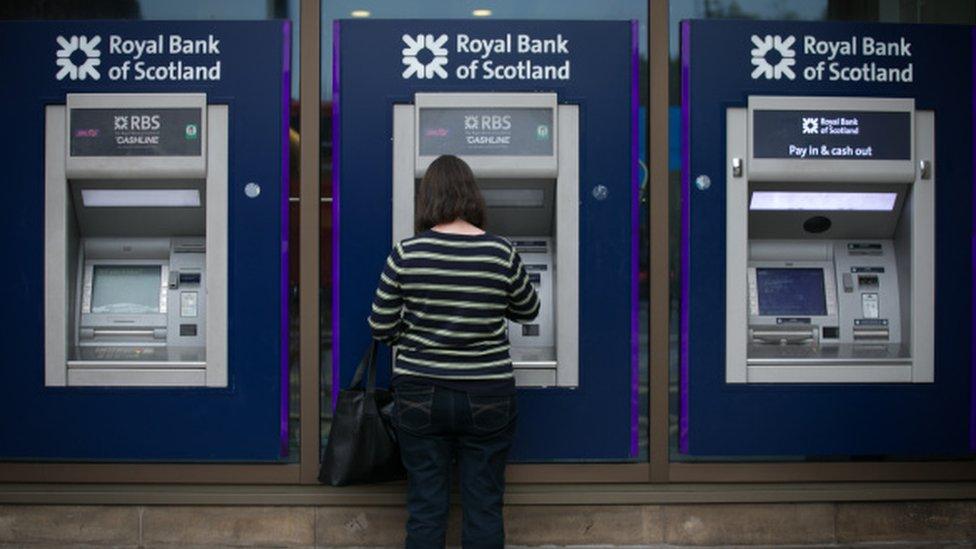
- Published28 November 2017
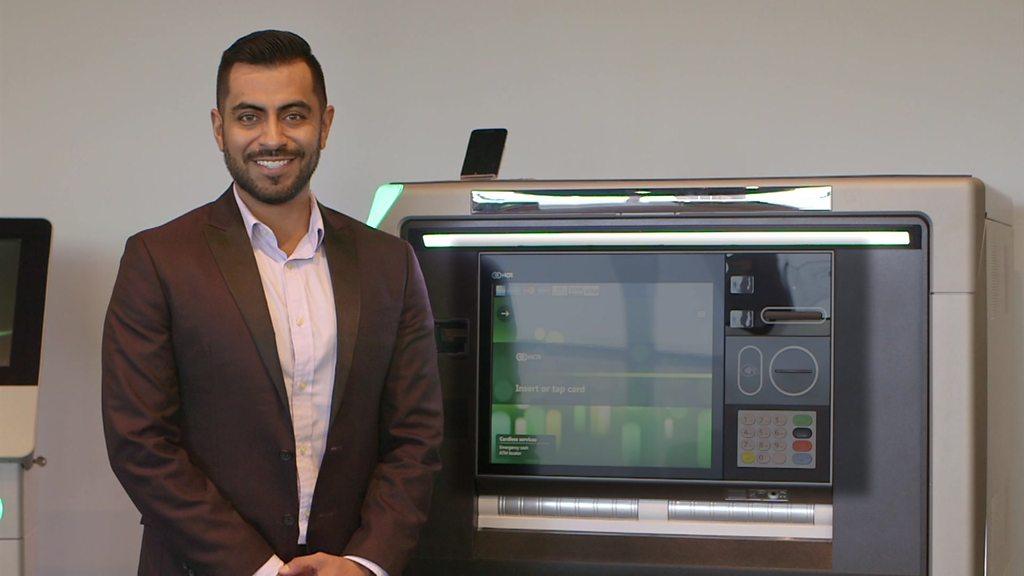
- Published3 March 2016
